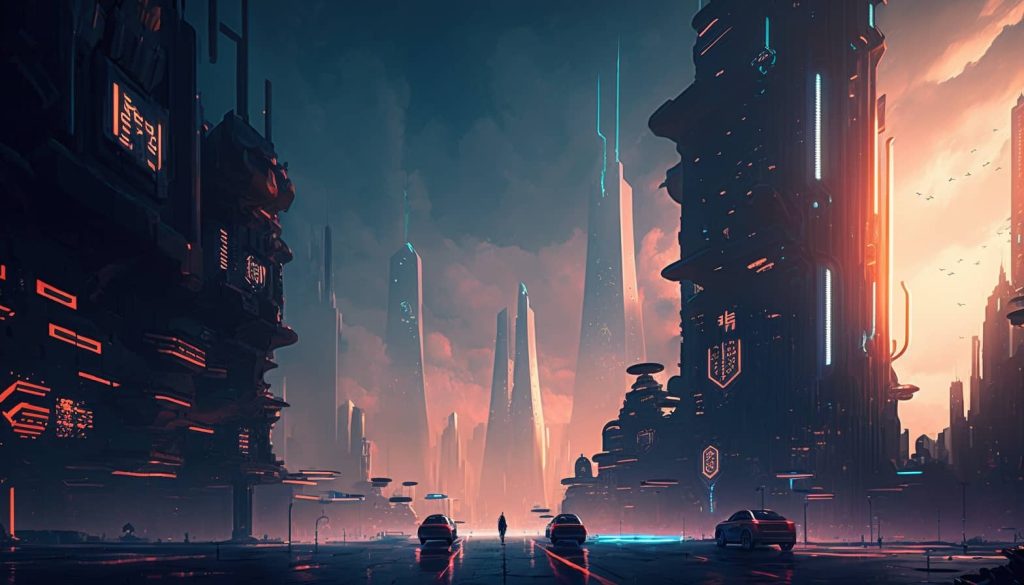
Sapiens: A Brief History of Humankind is a witty and thought-provoking exploration of human history that challenges readers to question everything they thought they knew about the nature of our existence
One of history’s few iron laws is that luxuries tend to become necessities and to spawn new obligations
Yuval Noah Harari
Sapiens: A Brief History of Humankind is the ultimate rollercoaster ride through human history. Buckle up and hold onto your hats as author Noah Harari takes you on a wild journey from our early days as foragers to today’s digital age. It’s like the Indiana Jones of history books, but with fewer snakes and more brain power.
Harari isn’t content with just telling the story of humanity. He wants to challenge your very existence. He’ll make you question everything you thought you knew about what it means to be human. You’ll ponder the cognitive revolution that turned Homo sapiens into the big cheese of the animal kingdom and the rise of empires that turned us into global citizens.
Agriculture, capitalism, technology, and artificial intelligence are all on the menu. Harari serves up a heaping helping of insight into the challenges and opportunities we face as a species in the 21st century and beyond.
So grab a drink, sit back, and prepare to have your mind blown. “Sapiens” is not just another dusty old history book. It’s a witty, engaging, and thought-provoking adventure that will change how you see the world.
Humans have been around for a relatively short time in the grand scheme of things, but we’ve achieved incredible things in our existence. From the development of language to the construction of skyscrapers, the arc of human history is full of fascinating and inspiring stories. Yuval Noah Harari’s “Sapiens: A Brief History of Humankind” provides an in-depth look at our species‘ history, from our earliest beginnings to the present. In this post, we’ll explore the book’s key themes and why it’s essential to understand the past to make sense of the present and future.
Around 70,000 years ago, something significant happened in the course of human evolution: the Cognitive Revolution. This was the moment when Homo sapiens began to develop the cognitive abilities that would set us apart from other hominid species. We started to use language, think abstractly, and imagine things that didn’t exist in the physical world. These abilities allowed us to cooperate on an unprecedented scale and paved the way for our eventual domination of the planet. Harari’s book delves into the details of this revolution and its impact on human history.
The next significant turning point in human history was the Agricultural Revolution, which occurred around 12,000 years ago. This was when humans transitioned from being hunter-gatherers to settled farmers, leading to the birth of civilization. The Agricultural Revolution allowed humans to produce surplus food, which, in turn, enabled population growth, the formation of cities, and the rise of complex societies. However, it also led to social inequalities, women’s subjugation, and disease development.

As civilizations developed, so did the desire to conquer and expand. The Unification of Humankind began with the rise of empires, such as the Roman Empire and the Chinese Empire, which brought vast areas under a single political authority. Later, the Age of Exploration and colonization brought about globalization, connecting different parts of the world through trade and spreading ideas. Harari’s book explores the benefits and drawbacks of these developments, from spreading culture and technology to exploiting resources and destroying local cultures.
The Scientific Revolution, which began in the 16th and 17th centuries, marked a significant shift in the way humans approached knowledge and understanding. It was a period of rapid scientific discovery and technological advancement that led to the birth of modernity. Science and reason became the guiding principles of human thought, leading to the development of democracy, capitalism, and the Industrial Revolution. Harari explores the impact of the Scientific Revolution on human history, from the creation of new social structures to the environmental impact.

The Industrial Revolution, which began in the late 18th century, marked another turning point in human history. It was a period of significant technological advancement, leading to the rise of capitalism and consumerism. New machines and manufacturing processes made goods more affordable and accessible, increasing consumer demand. However, the Industrial Revolution also had significant negative consequences, such as environmental degradation, worker exploitation, and the widening gap between the rich and the poor.
The Information Age, which began in the late 20th century, has brought about a new wave of technological change that is transforming our world. Harari investigates how the current era has affected society and culture, including the emergence of the internet and social media, as well as the effects of automation on employment. The Information Age has also led to the democratization of knowledge, humans now have access to more information than ever before, making it easier for people to access information and connect with each other across vast distances. However, it has also raised concerns about privacy, social isolation, and the impact of technology on mental health.

In the final section of “Sapiens,” Harari looks at humankind’s future, offering predictions and prospects for the 21st century and beyond. He explores the potential impact of new technologies such as artificial intelligence, genetic engineering, and nanotechnology, as well as the potential for climate change and other global challenges to reshape our world. Harari argues that understanding our past is crucial to making informed decisions about the future and that we hope to build a better world for ourselves and future generations only by recognizing the challenges and opportunities ahead.
“Sapiens: A Brief History of Humankind” is a book that challenges readers to think deeply about the nature of human existence and the impact of our actions on the world around us. It is a thought-provoking exploration of human history that offers insights into humanity’s challenges and opportunities in the 21st century and beyond. Do check out the sapiens website for more of noah harari’s insights By understanding our past, we can make informed decisions about the future and work together to build a better world for all.